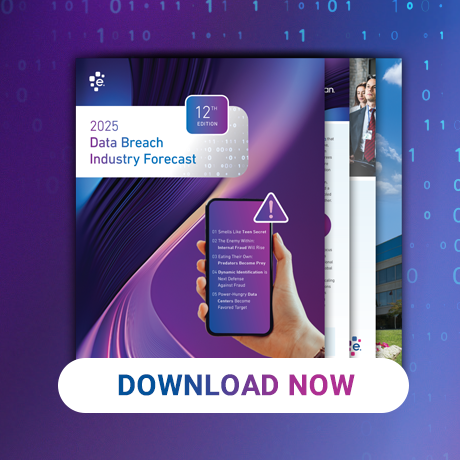
The response to the coronavirus (COVID-19) health crisis requires a brand-new mindset from businesses across the country. As part of our recently launched Q&A perspective series, Jim Bander, Market Lead of Analytics and Optimization and Kathleen Peters, Senior Vice President of Fraud and Identity, provided insight into how businesses can work to mitigate fraud and portfolio risk.
Q: How can financial institutions mitigate fraud risk while monitoring portfolios?
JB: The most important shift in portfolio monitoring is the view of the customer, because it’s very different during times of crisis than it is during expansionary periods. Financial institutions need to take a holistic view of their customers and use additional credit dimensions to understand consumers’ reactions to stress. While many businesses were preparing for a recession, the economic downturn caused by the coronavirus has already surpassed the stress-testing that most businesses performed.
To help mitigate the increased risk, businesses need to understand how their stress testing was performed in the past and run new stress tests to understand how financially sound their institution is.
KP: Most businesses—and particularly financial institutions—have suspended or relaxed many of their usual risk mitigation tools and strategies, in an effort to help support customers during this time of uncertainty.
Many financial institutions are offering debt and late fee forgiveness, credit extensions, and more to help consumers bridge the financial gaps caused by the economic downturn. Unfortunately, the same actions that help consumers can hamstring fraud prevention efforts because they impact the usual risk indicators. To weather this storm, financial institutions need to pivot from standard risk mitigation strategies to more targeted fraud and identity strategies.
Q: How can financial institutions’ exposure to risk be managed?
JB: Financial institutions are trying to extend as much credit as is reasonably possible—per government guidelines—but when the first stage of this crisis passes, they need to be prepared to deal with the consequences. Specifically, which borrowers will actually repay their loans.
Financial institutions should monitor consumer health and use proactive outreach to offer assistance while keeping a finger on the pulse of their customers’ financial health. For the foreseeable future, the focus will be on extending credit, not collecting on debt, but now is the time to start preparing for the economic aftermath. Consumer health monitoring is key, and it must include a strategy to differentiate credit abusers and other fraudsters from overall good consumers who are just financially stressed.
KP: As financial institutions work to get all of their customers set up with online and mobile banking and account access, there’s an influx of new requests that all require consumer authentication, device identification, and sometimes even underwriting. All of this puts pressure on already strained resources which means increased fraud risk.
To manage this risk, businesses need to balance customer experience—particularly minimizing friction—with vigilance against fraudsters and reputational risk. It will require a robust and flexible fraud strategy that utilizes automated tools as much as possible to free up personnel to follow up on the riskiest users and transactions.
Experian is closely monitoring the updates around the coronavirus outbreak and its widespread impact on both consumers and businesses. We will continue to share industry-leading insights to help financial institutions manage their portfolios and protect against losses.
About Our Experts:
[avatar user=”jim.bander” /]
Jim Bander, Market Lead, Analytics and Optimization, Experian Decision Analytics, North America
Jim joined Experian in April 2018 and is responsible for solutions and value propositions applying analytics for financial institutions and other Experian business-to-business clients throughout North America. He has over 20 years of analytics, software, engineering and risk management experience across a variety of industries and disciplines. Jim has applied decision science to many industries, including banking, transportation and the public sector.
[avatar user=”kathleen.peters” /]
Kathleen Peters, Vice President, Fraud and Identity, Experian Decision Analytics, North America
Kathleen joined Experian in 2013 to lead business development and international sales for the recently acquired 41st Parameter business in San Jose, Calif. She went on to lead product management for Experian’s fraud and identity group within the global Decision Analytics organization, launching Experian’s CrossCore® platform in 2016, a groundbreaking and award-winning new offering for the fraud and identity market. The last two years, Kathleen has been named a “Top 100 Influencer in Identity” by One World Identity (OWI), an exclusive list that annually recognizes influencers and leaders from across the globe, showcasing a who’s who of people to know in the identity space.


